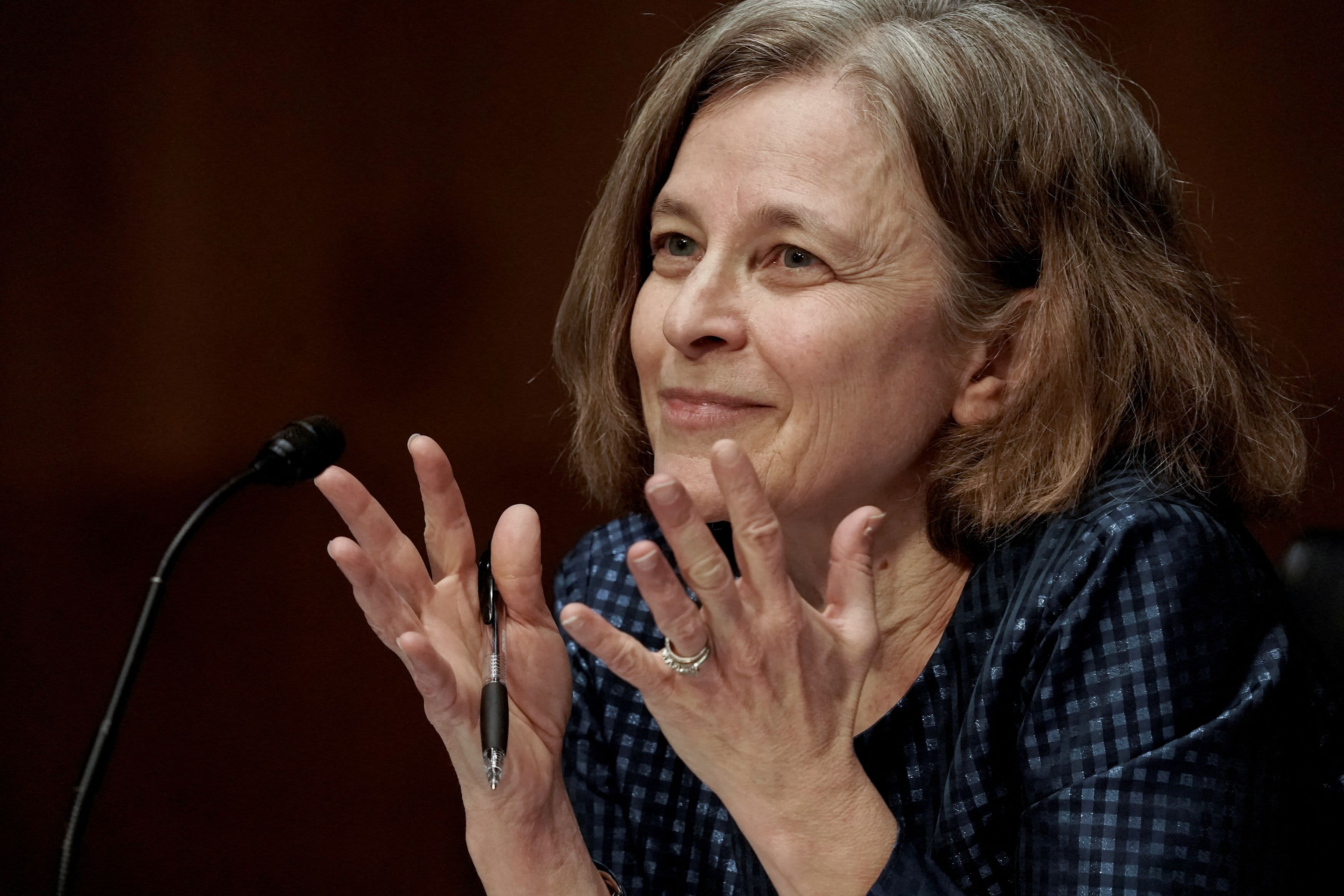Senate Republicans on Thursday peppered the nominee to be the Federal Reserve’s top banking watchdog with questions over whether she would steer the institution into climate change and other areas outside of its mandate.
President Joe Biden put up Sarah Bloom Raskin to the post of vice chair for banking supervision, arguably the most important regulator for the industry.
Though Raskin said that previous writings from her that cast fossil fuels in an unfavorable light would not cause her to put the Fed “in the business of choosing winners and losers,” GOP members of the Senate banking panel weren’t convinced.
“With respect to Ms. Raskin, I have to say this is one of the most remarkable cases of confirmation conversion I have ever seen, although she doesn’t acknowledge the contradiction of what she has said today compared to the things she has been saying and writing for years,” ranking Republican Sen. Patrick Toomey of Pennsylvania said.
Toomey specifically pointed to commentary pieces Raskin authored that spoke of allocating capital away from fossil fuels businesses. In one May 2020 piece for The New York Times titled “Why Is the Fed Spending So Much Money on a Dying Industry?” Raskin discouraged the central bank from using its emergency lending powers deployed at the beginning of the Covid-19 pandemic to help big energy companies.
“Climate change threatens financial stability; addressing it can create economic opportunity and more jobs,” Rasking wrote then. “The decisions the Fed makes on our behalf should build toward a stronger economy with more jobs in innovative industries — not prop up and enrich dying ones.”
Asked repeatedly whether her writings meant she would push banks not to lend money to fossil fuel companies, Raskin said doing so is beyond the Fed’s purview.
Fed officials have said they are working with banks to update their planning to include financial impacts from climate-related events. There are no plans as of now to include those provisions in stress tests for large institutions.
“It is not the role of the Federal Reserve to get engaged in favoring one sector,” Raskin said. “I’m saying I view it as outside the bounds of the law. The Federal Reserve was set up by Congress and with particular mandates, and as a lawyer I live within those mandates.”
The hearing also was held to question economists Lisa Cook and Philip Jefferson, whom Biden also nominated to fill vacant positions on the Fed’s Board of Governors.
Cook in particular faced questions on her views on inflation and her resume, which Sen. Bill Hagerty, R-Tenn., accused Cook of embellishing.
“Today’s hearing is not just about vetting them,” Toomey said. “It’s really about the Fed’s independence and whether or not we’re going to abandon a core part of our democracy.”
But committee Chair Sen. Sherrod Brown, D-Ohio, said the Republican criticisms were politically fueled. He pointed out that Raskin, who already has served as a Fed governor, has breezed through previous confirmation hearings with bipartisan support.
“We have seen a coordinated effort by some to paint her as a radical,” Brown said. “That characterization requires a suspension of common sense.”
The committee is expected to vote on the nominations, along with those of current Fed Chair Jerome Powell and Lael Brainard, a governor whom Biden seeks to promote to vice chair, later this month.
